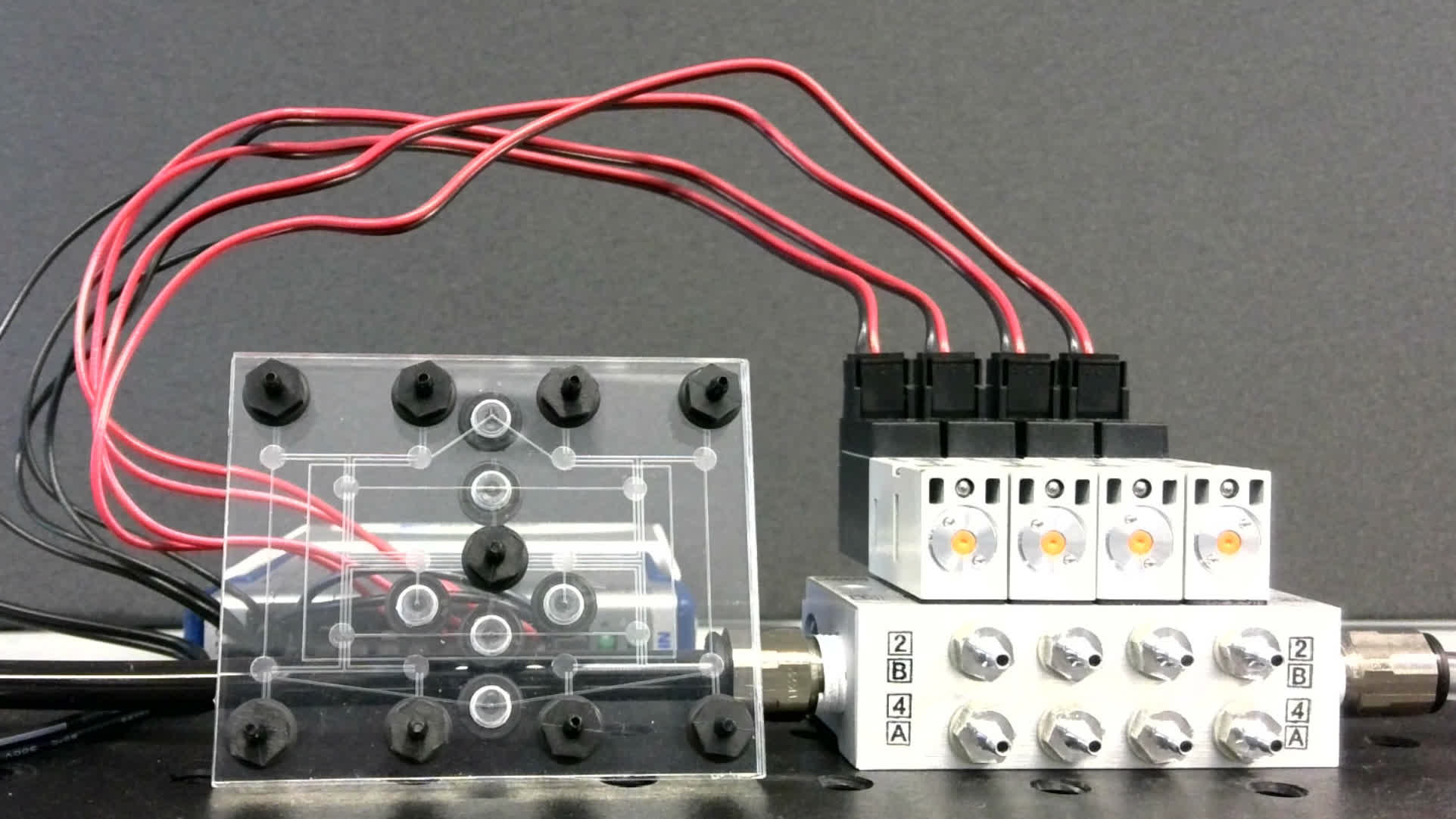In context: Researchers at the University of California Riverside (UCR) have developed an air-powered memory system for controlling soft robots. Soft robots are just what they sound like—robots made of soft, flexible materials. An example would be Harvard's octopus-like tentacle. These types of robots are ideal for handling delicate tasks.

Soft robots currently require electronic hardware to operate. These components increase the costs, size, and power demands of soft-robotic devices. So UCR engineers have developed a pneumatic RAM chip capable of controlling its soft robot well enough to play simple songs on a piano.
Logically, pneumatic RAM works the same way as traditional memory components. The difference is that it uses the same air that powers the robotic fingers instead of transistors and electricity to create the binary gates. The device interprets the presence of atmospheric pressure in microfluidic valves as a true value (or 1) and a vacuum as false (or 0).
"The microfluidic valves were originally designed to control the flow of liquids on microfluidic chips, but they can also control the flow of air. The valves remain sealed against a pressure differential even when disconnected from an air supply line, creating trapped pressure differentials that function as memories and maintain the states of a robot's actuators. Dense arrays of these valves can perform advanced operations and reduce the expensive, bulky, and power-consuming electronic hardware typically used to control pneumatic robots."
Under its current configuration, the pneumatic RAM is only equivalent to an 8-bit memory chip, so it is very limited. However, it is enough to allow the UCR robot to play Mary Had A Little Lamb on a keyboard, albeit slowly (above).
There is still a lot of work to do in the field, but the researchers believe that creating an autonomous robot with a processor and memory that runs on air is possible. Of course, for the system to be practical, more complex components and miniaturization are required. PLOS One published the team's paper on the project for those interested in reading the technical specifics.